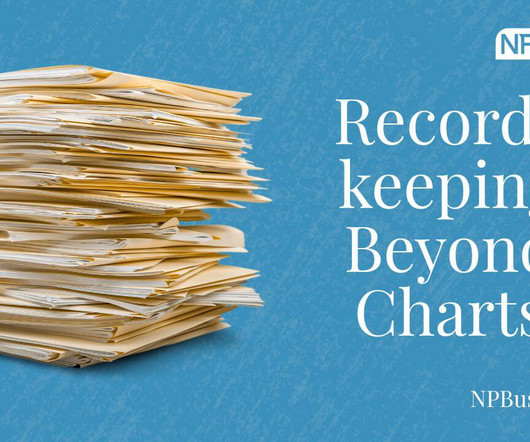Record-Keeping Beyond Charts
Nurse Practitioners in Business
APRIL 24, 2025
Clinical and Medical Records No surprise here Every practice must keep all records related to patient care, including progress notes, treatment plans, lab results, imaging, and prescriptions. Well also touch on strategies for managing records efficiently and securely. Types of Records Your Practice Must Keep 1.












Let's personalize your content